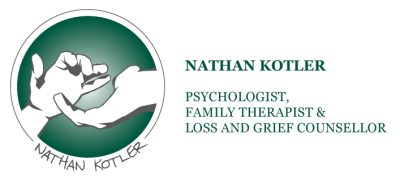Cancer — we need to change the conversation
ABC Health & Wellbeing, 11th August, 2016
By Dr Ranjana Srivastava, with Ginger Gorman.
When it comes to cancer, the media traditionally paints a picture of two extremes.
It celebrates the outliers — like the person who defied death and went on to have long, successful life, or the unfortunate patient whose life and circumstances were cruelly defined by a terminal illness.
These stories are powerful and valid, of course.
But the stories we also need to hear are those about everyday people. How they live with illness; how they cope with the swings and roundabouts of having a chronic illness, when you are not always sick but not well either; the challenges of access to care; and the realities of being poor and sick, non-English speaking and sick, and so on.
We love heroes! None more so than heroes who have beaten cancer. But the stories of struggles, physical, emotional and existential, are thought to be too depressing.
The people who promote this dichotomy must realise that by only showing us one small aspect of cancer, they do the general population a disservice.
We can begin to address this though, by realising that the fear, vulnerability and indignity of having cancer is real and common — and also amenable to help, if we recognise it.
We also need to find a way to address what many cancer researchers have been rightly pointing out for a while now: that some cancers attract the lion’s share of attention, whereas many other deserving cancers don’t.
Breast and prostate cancer are some examples of highly visible cancers — backed by strong advocates and fundraisers.
But when was the last time you heard anything about brain, pancreatic or gallbladder cancer?
These are diseases with bleak survival rates, in desperate need of more research to yield better treatments.
I think part of the problem is that when people are very sick, or have a limited life expectancy, they may not have the energy for advocacy.
However it’s our responsibility to not forget their needs.
The good news is that unlike previous generations, many cancer patients now live a long time after diagnosis or in remission. I think general awareness about this is growing as more of us meet someone who has been brushed by cancer.
Two thirds of people diagnosed with cancer today will survive five years. The chance of surviving longer rises for every five years you have been alive.
But the medical profession has a long way to go in catering to the needs of survivors — we have traditionally been inadequate at this because treatment has focused on ridding the patient of the disease, but not the trauma that accompanied it.
People who have had cancer often describe being permanently changed by the experience.
As a community, we must try to support them in their personal and professional lives, and learn from their perspectives.
And although cancer survival rates are on the increase, we also need to have better conversations about dying — and it’s doctors who have the biggest role to play here.
We all know that death is inevitable. But as medical technology advances we have deluded ourselves into believing that the technology will not just delay, but potentially deflect death.
However it’s very difficult to practice good medicine, without preparing patients for the notion of mortality.
This doesn’t mean abandoning impeccable preventive or medical care, but realising that the demand for a good quality of life extends to the quality of death.
We must recognise that discussing death and dying is not an optional extra in the making of a doctor.
No matter what area of medicine you practice, if you care about your patients you have a role to play in discussing a time when no drugs or machines can suspend death.
Far from extinguishing hope, this realisation can be a powerful step towards preparing people to die.
Dr Ranjana Srivastava is an oncologist and author of several books on cancer. These are her words, as told to freelance journalist and cancer survivor Ginger Gorman.
Leave a reply